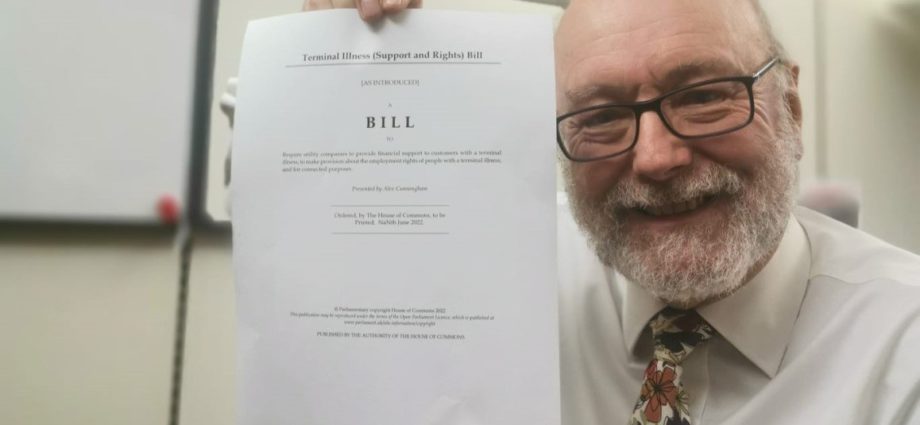
ADVERTISEMENT
A bill (Terminal Illness [Support and Rights] Bill) proposed by Stockton North MP Alex Cunningham to strengthen employment rights of terminally ill people and stop people with terminal illnesses falling into fuel poverty will be debated in the House of Commons on Friday 18 November.
What’s in the bill?
Alex has been working with Marie Curie and the Trades Union Congress to bring forward legislation that would require utility companies to provide financial support through existing hardship funds – the Warm Home Discount and Energy Company Obligation schemes – to customers with a terminal illness.
The Bill would also tighten employment regulations which would mean employers would be stopped from exploiting loopholes in legislation to sack someone with a terminal illness. If a worker with a terminal illness loses their job, they not only lose their income, but can also lose any death in service payments they have earned through a lifetime of work but are only payable to those that die while still in employment.
Support for those with a terminal illness
After presenting the bill earlier this year Alex hopes the bill will pass its next hurdle on Friday and take a step further to become law.
Alex said:
“If you or a loved one is terminally ill the last thing you need is extra stress caused by worrying about whether you can afford to pay your energy bills. Yet research by Marie Curie and shows that people who are terminally ill often face a loss of income and increased pressures on their finances.
“My proposed bill will require utility companies provide financial support to customers with a terminal illness, and stop people being forced into fuel poverty as a result of being terminally ill. The bill will also not only close loopholes used by unscrupulous employers to sack workers who have a terminal illness, but ensure employers have a responsibility to provide appropriate help and support to a person to allow them to continue to work if they wish to do so.
“I hope that the government can provide their support to these clauses. While they may be simple and straightforward, I believe they could make a significant impact on the lives of terminally ill people, particularly those of working age, when they are at their most vulnerable.”


